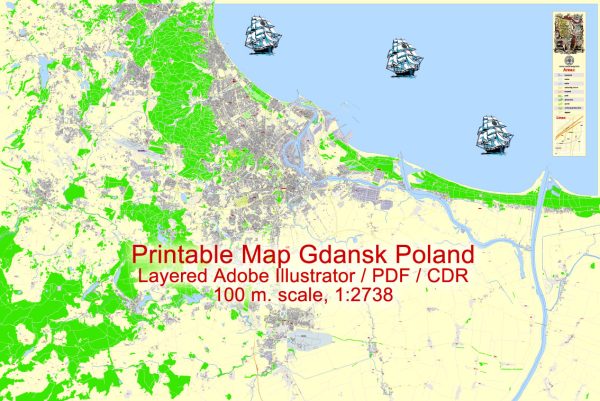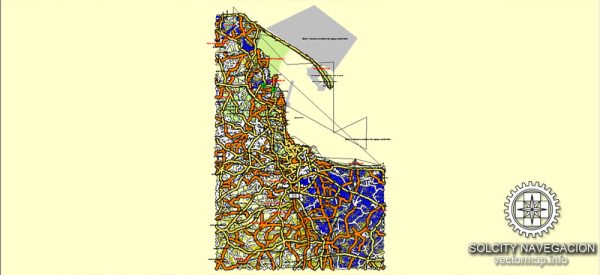Gdańsk, a historic port city in northern Poland, has a diverse and evolving socio-economic profile. Here’s a general description of its socio-economic situation:
- Economy: Gdańsk is one of the key economic hubs of Poland and part of the Tricity metropolitan area along with Gdynia and Sopot. It has a diverse economy that includes industries like shipbuilding, manufacturing, trade, and services. The city is home to the Gdańsk Shipyard, which played a pivotal role in the Solidarity movement during the 1980s. The maritime industry remains significant, with the Port of Gdańsk being the largest seaport in Poland.
- Trade and Commerce: Gdańsk’s strategic location on the Baltic Sea has made it a prominent center for trade. The city hosts various trade fairs and exhibitions. Its proximity to the European Union’s eastern and northern markets has made it an attractive destination for international companies.
- Tourism: Gdańsk is known for its rich history and picturesque Old Town. Tourism is a vital component of its economy, attracting visitors with its historic architecture, cultural attractions, and coastal beauty. The tourism industry contributes significantly to employment and revenue.
- Education and Innovation: Gdańsk has a growing reputation in education and innovation. It is home to several universities, research institutions, and technology parks. The Gdańsk Science and Technology Park, for instance, promotes innovation and supports startups and tech companies.
- Transportation: The city is well-connected with other parts of Poland and Europe. The Gdańsk Lech Wałęsa Airport facilitates domestic and international travel. The transportation infrastructure, including road and rail networks, is essential for the movement of goods and people.
- Demographics: Gdańsk has a diverse population. It is home to people from various backgrounds and ethnicities. The city has been historically influenced by German, Polish, and Kashubian cultures.
- Culture and Arts: Gdańsk has a vibrant cultural scene with numerous theaters, museums, and galleries. The European Solidarity Center, dedicated to the history of the Solidarity movement, is a significant cultural and historical institution.
- Challenges: Like many urban areas, Gdańsk faces socio-economic challenges such as income inequality, affordable housing, and urban development. These are common issues in growing metropolitan areas.



 Author: Kirill Shrayber, Ph.D. FRGS
Author: Kirill Shrayber, Ph.D. FRGS